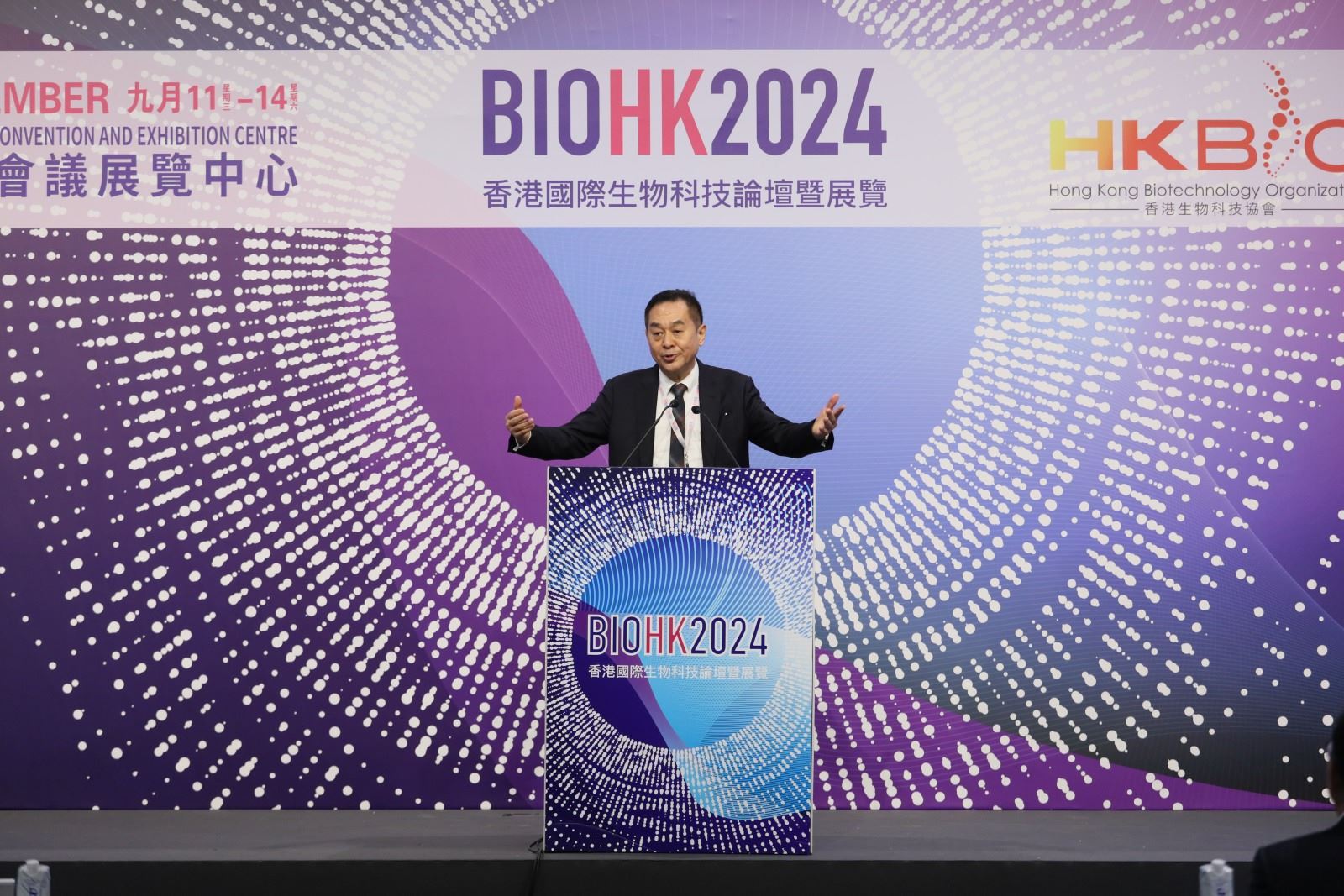
Hong Kong is one of the largest fundraising hubs for the biotechnology sector, the city’s secretary for innovation, technology and industry said on Wednesday.
As of the end of April this year, the Innovation and Technology Fund has funded approximately 830 projects on the biotechnology front, Sun Dong said during the opening ceremony of the Hong Kong International Biotechnology Convention 2024 in the city.
ALSO READ: Summit: HK ideal launchpad for biotechnology firms
The four-day summit, organized at the Hong Kong Convention and Exhibition Centre, offers opportunities for the biotechnology community to come together to share original insights and cutting-edge knowledge, explore collaboration possibilities, and foster business cooperation.
“Currently, Hong Kong is home to more than 200 biotech-related companies, the majority of which are healthcare firms, traditional Chinese medicine, or medical devices. We are also home to top universities, particularly for life science and medicine and this will provide solid soil for our continued advancement as an international biotech hub,” said Clara Chan Ka-chai, CEO of Hong Kong Investment Corporation.

Talking to China Daily, Albert Yu Cheung-hoi, chairman of the Hong Kong Biotechnology Organization and BIOHK, said biotechnology is not only about medicine but also encompasses the oceans, environment, agriculture, and many other areas, including our food, clothing, housing, and transportation.
“Biotech harnesses cellular processes to develop technologies and products that improve our lives and the health of our planet. It is a significant technological transformation in the ways we diagnose and treat diseases,” he added.
READ MORE: AI firm launches first IPO after listing reform for pre-revenue tech firms
Fifty companies are set to showcase their innovations during BIOHK 2024. Among them, five top firms will be selected for the “5-to-watch” awards, according to him.
“Speed is crucial in seizing business opportunities. BIOHK brings together all stakeholders – investors, investment banking professionals, lawyers, and accountants – to support those with valuable achievements.”
Liu Da, vice-chairman of the Hong Kong Biotechnology Organization, told China Daily that Hong Kong has made tremendous progress in the life science and biotech sector in the past eight years. Initially, the number of companies at the Hong Kong Science and Technology Park was around 20-30, and now it has exceeded 200.

“Another milestone is the opening of Chapter 18A of the Hong Kong listing rules, allowing qualified biotechnology companies without revenue or profits to list. This is a historical policy that benefits the life science industry worldwide,” he said.
Talking to China Daily, Raju Kucherlapati, strategic advisor of the AIM-HI Accelerator Fund and professor at Harvard Medical School, said healthcare costs will be significantly lower if it is possible to prevent diseases on a population basis, and it is among the latest discussions in life science.
READ MORE: Biotech listings turn HK bourse into 'market of choice'
“First of all, you need to have a discovery or idea that has the potential to result in a product. For many young people who try to develop their innovations, I would say the combination of science and business would make it very attractive.” Stressing that time pressure is a factor in investment, he said: “You need a schedule, and you need to focus on prioritizing the technology you want to deliver. The success of the company is very dependent on the people who run it, so the personnel of the CEO or other staff are also very important.”
Talking about advising the young participators in this field, George Hara, group chairman and CEO of DEFTA Partners, told China Daily, “When they start new companies, they should think, they should contribute to the society, not simply to make money.”
Contact the writer at irismuk@chinadailyhk.com


